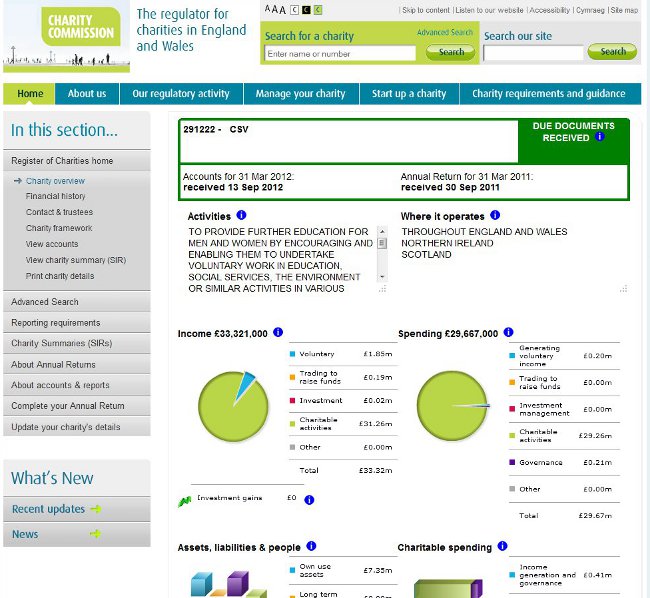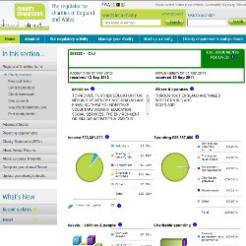The Charity Commission takes too long to make charities’ accounts public on its website, says Tania Mason. Maybe it should take a leaf out of Companies House’s book and charge a fee to see them.
The Charity Commission wastes no time chivvying charities along to file their accounts by deadline, but it’s not exactly on-the-ball when it comes to publishing newly-submitted accounts on its own online register.
Take a look at CSV’s current entry, for example (pictured below). The border is green, confirming ‘Due documents received’ and the site states that the charity’s accounts for the year to 31 March 2012 were received by the Commission on 13 September.
Read on to the figures immediately below and you’ll be told that the income for the year was £33.3m and the expenditure was £29.6m. The clear inference from the page is that these are the figures for 2011/12, for which the due documents have been duly received.
But this is not, in fact, the case. The figures quoted on the page are actually the previous year’s figures, because the Commission has not yet made CSV’s latest accounts available on the site, despite receiving them more than two weeks ago. But you only find this out if you click through to the ‘financial history’ page of CSV’s entry.
It’s not a massive outrage, in the grand scheme of things - you can usually find the accounts on the charity's own website. But this CSV page is not an isolated case – the regulator often takes several days or weeks to make charities’ accounts available for public view, after it receives them.
I accept that the Commission has less resource than it used to, and probably a backlog of accounts, especially at this time of the year when all those charities with a March year-end submit their documents. But the delay doesn’t reflect well on the Commission, especially when you can almost always go to the Companies House website and obtain the accounts from there.
But maybe therein lies the solution. Companies House charges £1 for each document you download – the Charity Commission charges nothing. As a journalist who looks at plenty of charity accounts on the online register, I may be shooting myself in the foot here, but it’s an idea worth putting out there. Perhaps the Charity Commission should charge members of the public a nominal fee to view charities’ accounts?
Sam Younger said this week that six million of the 43 million page views to the Commission’s website last year were to charities’ pages on the register. If even 10 per cent of these looked at accounts, that could raise an additional £600,000 for the Commission. With this extra income, it could employ more resource to make sure every set of accounts that are submitted are published immediately, and the ‘homepage’ of each charity’s register entry will always be up-to-date and not misleading.










